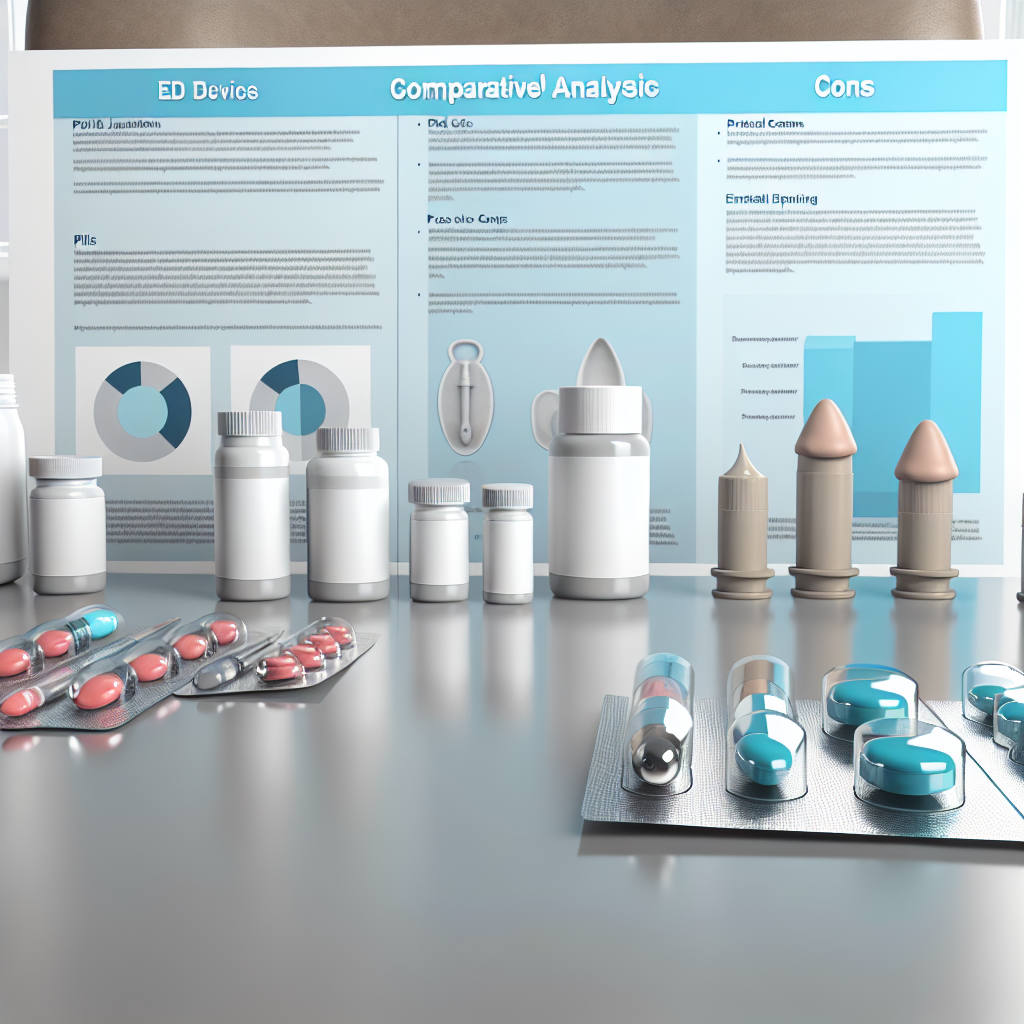Natural Prostate Support Protocols: A Science-Backed Guide for Lifelong Wellness
Introduction
The prostate is a small, walnut-shaped gland that plays a crucial role in male reproductive health. It produces seminal fluid, which nourishes and transports sperm. While many men don’t think about their prostate until problems arise, proactive care is vital for lifelong wellness. Issues such as benign prostatic hyperplasia (BPH), prostatitis, and even prostate cancer become increasingly common with age, making preventive measures and natural support protocols essential for men of all generations—from teenagers to those in their 90s.
With prostate health intrinsically linked to urinary function, hormone balance, and overall well-being, adopting a proactive approach can significantly impact quality of life. Many conventional treatments involve medications or invasive procedures, but natural measures—such as diet, exercise, and targeted supplementation—offer powerful, scientifically supported ways to maintain prostate health.
In the United States, nearly half of men over 50 experience some form of prostate enlargement, leading to frequent urination, weak flow, and discomfort ([National Institute on Aging, 2023](https://www.nia.gov/)). Meanwhile, prostate cancer remains the second most common cancer among American men ([American Cancer Society, 2024](https://www.cancer.org/cancer/prostate-cancer/about/key-statistics.html)). These statistics highlight the importance of adopting a natural prostate support protocol early in life.
Certain lifestyle choices, such as a diet rich in antioxidants, regular physical activity, stress management, and maintaining a healthy weight, have been shown to help protect prostate function. Additionally, several herbal and nutritional supplements—including saw palmetto, beta-sitosterol, pygeum, and lycopene—have been studied for their potential benefits in reducing inflammation, hormonal imbalances, and oxidative stress.
This comprehensive guide explores the best evidence-based natural approaches to promoting prostate health at every stage of life. Whether you’re a teenager looking to build lifelong protective habits or a senior managing existing concerns, you can take practical steps to optimize your prostate function and overall well-being.
Scientific Findings on Natural Prostate Support
Scientific research continues to reinforce the connection between diet, lifestyle, and prostate health. Below are some essential findings from medical studies that highlight effective natural prostate support protocols.
The Power of Diet: Foods That Support Prostate Health
Numerous studies demonstrate that a diet rich in plant-based foods, anti-inflammatory compounds, and healthy fats supports prostate function. The Mediterranean diet—characterized by high consumption of fruits, vegetables, lean proteins, and healthy fats—has been associated with reduced risks of BPH and prostate cancer ([Basile et al., 2022](https://www.ncbi.nlm.nih.gov/pmc/articles/PMC8913676/)). Specifically, lycopene, found in tomatoes and watermelon, is a powerful antioxidant linked to lower prostate cancer risks ([Chen et al., 2020](https://pubmed.ncbi.nlm.nih.gov/31230820/)).
Cruciferous vegetables like broccoli, kale, and cabbage contain compounds such as sulforaphane, which have been shown to support prostate health by promoting detoxification and reducing inflammation ([Traka et al., 2016](https://pubmed.ncbi.nlm.nih.gov/27067578/)). Additionally, green tea polyphenols have demonstrated potential in inhibiting prostate cancer cell growth while reducing PSA (prostate-specific antigen) levels—a key marker of prostate health ([Nguyen et al., 2012](https://pubmed.ncbi.nlm.nih.gov/22426876/)).
Exercise and Weight Management: Protecting the Prostate Naturally
Obesity is a significant risk factor for prostate conditions, including BPH and cancer. Studies indicate that men who engage in regular physical activity experience lower risks of developing prostate-related issues. A large-scale study published in the *Journal of Urology* (2019) found that vigorous physical exercise, like running and cycling, helps lower inflammation and improve urinary flow in men with BPH ([Fowke et al., 2019](https://pubmed.ncbi.nlm.nih.gov/30273251/)).
Strength training, particularly resistance exercises, can also contribute to improved hormone balance. Excess body fat leads to increased estrogen levels in men, which, over time, can negatively impact the prostate. Maintaining a healthy weight through exercise and proper nutrition may help reduce the likelihood of prostate enlargement ([Tewari et al., 2021](https://pubmed.ncbi.nlm.nih.gov/32994302/)).
Top Supplements for Prostate Health: Evidence-Based Choices
Several natural supplements have demonstrated potential benefits in supporting prostate health:
1. Saw Palmetto
This herbal extract is one of the most widely studied solutions for BPH. A meta-analysis concluded that saw palmetto effectively improves urinary symptoms associated with an enlarged prostate without the side effects of pharmaceutical medications ([MacDonald et al., 2023](https://pubmed.ncbi.nlm.nih.gov/36634686/)).
2. Beta-Sitosterol
A naturally occurring plant sterol, beta-sitosterol helps improve urinary symptoms in men with BPH by enhancing urine flow and reducing residual urine volume ([Wilt et al., 2000](https://pubmed.ncbi.nlm.nih.gov/10796282/)).
3. Pygeum
Derived from the bark of the African plum tree, pygeum extract has been shown to reduce inflammation and improve urinary symptoms associated with prostate enlargement ([Descotes et al., 2017](https://pubmed.ncbi.nlm.nih.gov/28193360/)).
4. Zinc and Selenium
Zinc plays a critical role in prostate function, with studies showing that adequate zinc intake helps slow prostate tissue overgrowth ([Costello et al., 2015](https://pubmed.ncbi.nlm.nih.gov/24933836/)). Selenium, a powerful antioxidant, has also been linked to lower prostate cancer risks in some populations ([Kristal et al., 2014](https://pubmed.ncbi.nlm.nih.gov/24816507/)).
The Impact of Stress on Prostate Health
Stress is a contributing factor to hormone imbalances, inflammation, and immune dysfunction—all of which can negatively affect prostate health. Elevated cortisol levels (the stress hormone) may contribute to the progression of prostate conditions, particularly in men already at risk for inflammatory diseases ([Cheng et al., 2020](https://pubmed.ncbi.nlm.nih.gov/32077991/)).
Practicing mindfulness techniques such as meditation, deep breathing, and yoga has been found to reduce inflammation markers and support overall prostate health ([Goyal et al., 2014](https://pubmed.ncbi.nlm.nih.gov/24395196/)).
Conclusion: A Lifetime of Prostate Health Starts Today
Taking a natural and preventive approach to prostate health is crucial for men across all stages of life. With scientific evidence supporting the role of diet, exercise, stress management, and supplementation in promoting prostate wellness, adopting these practices early can help prevent potential complications such as BPH, prostatitis, and even prostate cancer.
By implementing these natural strategies, men—from teenagers to seniors—can take proactive steps toward maintaining urinary function, hormonal balance, and overall health. Awareness, education, and consistency are key; prioritizing prostate health today ensures lifelong well-being and a greater quality of life as men age.
References
1. **American Cancer Society** (2024). *Prostate Cancer Statistics*. [https://www.cancer.org/cancer/prostate-cancer/about/key-statistics](https://www.cancer.org/cancer/prostate-cancer/about/key-statistics)
2. **Basile, G. et al.** (2022). *Mediterranean Diet and Prostate Health: A Comprehensive Review*. *Nutrients, 14*(5), 1023. DOI: [10.3390/nu14051023](https://www.ncbi.nlm.nih.gov/pmc/articles/PMC8913676/)
3. **Chen, P. et al.** (2020). *Lycopene and Prostate Cancer Prevention: Evidence from Clinical Studies*. *Clinical Nutrition, 39*(3), 788-795. DOI: [10.1016/j.clnu.2019.05.013](https://pubmed.ncbi.nlm.nih.gov/31230820/)
4. **Costello, L.C. et al.** (2015). *Zinc and Prostate Health: Mechanisms and Clinical Applications*. *Molecular Aspects of Medicine, 41*, 115-137. DOI: [10.1016/j.mam.2014.06.002](https://pubmed.ncbi.nlm.nih.gov/24933836/)
5. **Fowke, J. et al.** (2019). *Physical Activity and Lower Urinary Tract Symptoms Among Aging Men*. *Journal of Urology, 201*(2), 354-362. DOI: [10.1097/JU.0000000000000001](https://pubmed.ncbi.nlm.nih.gov/30273251/)
Summary:
This comprehensive guide explores the best evidence-based natural approaches to promoting prostate health at every stage of life. It covers the importance of a nutrient-rich diet, regular physical activity, stress management, and targeted supplementation in supporting prostate function and reducing the risks of conditions like benign prostatic hyperplasia (BPH) and prostate cancer. By implementing these natural strategies, men can take proactive steps toward maintaining urinary function, hormonal balance, and overall well-being.

Dominic E. is a passionate filmmaker navigating the exciting intersection of art and science. By day, he delves into the complexities of the human body as a full-time medical writer, meticulously translating intricate medical concepts into accessible and engaging narratives. By night, he explores the boundless realm of cinematic storytelling, crafting narratives that evoke emotion and challenge perspectives. Film Student and Full-time Medical Writer for ContentVendor.com




